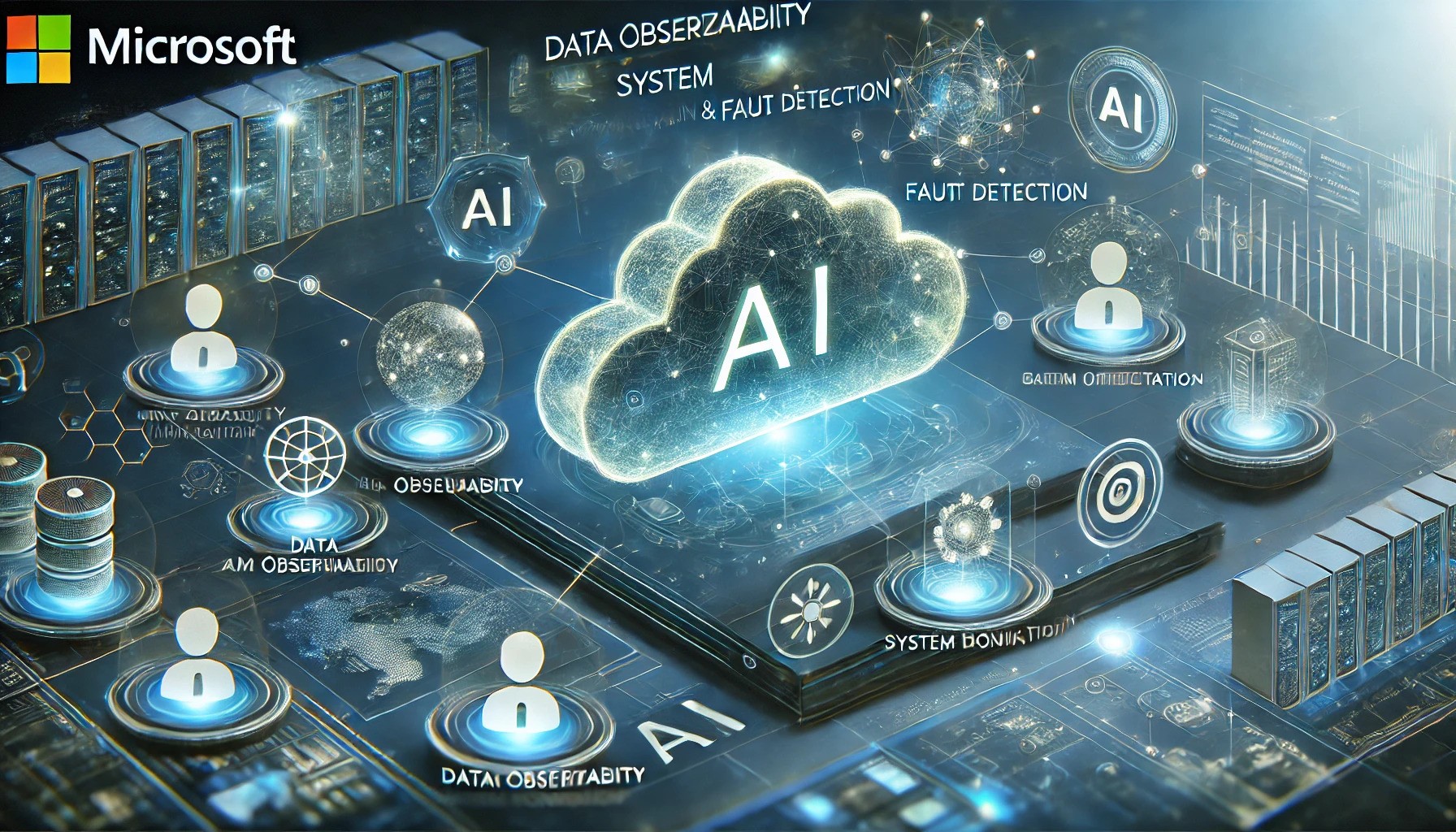Microsoft Revolutionizes Cloud Operations with AIOpsLab: A Game-Changing AI Framework for DevOps
In a groundbreaking development for cloud computing and artificial intelligence, Microsoft has unveiled AIOpsLab, an innovative open-source framework designed to transform how AI agents operate in cloud environments. This revolutionary platform represents a significant leap forward in the field of AIOps (Artificial Intelligence for IT Operations), offering developers and researchers unprecedented capabilities to build, test, and enhance AI-powered operational solutions.
Addressing Critical Challenges in Cloud Operations
Modern enterprises increasingly rely on complex cloud infrastructure, facing a myriad of operational challenges that can impact service reliability and performance. Traditional approaches to managing these systems often fall short, particularly when it comes to:
- Rapid incident detection and response
- Accurate root cause analysis
- Efficient problem mitigation
- System optimization and maintenance
AIOpsLab emerges as a comprehensive solution to these challenges, powered by Microsoft’s extensive experience in cloud computing and artificial intelligence.
Breaking New Ground with Standardized Framework
What sets AIOpsLab apart is its unique approach to standardizing AI agent development for cloud operations. The framework introduces several innovative features that make it a game-changer in the field:
1. Intermediate Interface Architecture
At the heart of AIOpsLab lies a sophisticated intermediate interface that creates a clear separation between AI agents and application services. This architectural decision offers several key advantages:
- Seamless integration capabilities with existing systems
- Enhanced flexibility for system extensions
- Improved modularity and maintainability
- Real-world scenario simulation capabilities
2. Advanced Workload and Fault Generation
The framework includes a powerful workload and fault generator that enables developers to:
- Create realistic testing scenarios
- Simulate various fault conditions
- Generate normal operational patterns
- Train AI agents in a controlled environment
3. Comprehensive Observability Layer
AIOpsLab’s observability features provide unprecedented visibility into system operations through:
- Detailed telemetry data collection
- Customizable monitoring capabilities
- Granular control over data visibility
- Real-time performance insights
Core Capabilities and Use Cases
AIOpsLab currently supports four essential operational tasks that form the backbone of modern cloud management:
- Incident Detection: Rapid identification of system anomalies and potential issues
- Localization: Precise pinpointing of problem areas within complex systems
- Root Cause Diagnosis: Advanced analysis to determine the underlying causes of incidents
- Mitigation: Automated response and problem resolution capabilities
Research Recognition and Industry Impact
The significance of AIOpsLab has been recognized by the academic community, with a research paper on the framework being accepted at the prestigious ACM Symposium on Cloud Computing (SoCC’24). This acceptance underscores the scientific rigor and innovation behind the platform.
Azure AI Agent Service Integration
Microsoft has ensured seamless integration between AIOpsLab and the Azure AI Agent Service, providing developers with:
- Enterprise-grade scalability
- Robust security features
- Advanced monitoring capabilities
- Comprehensive support infrastructure
Availability and Licensing
Microsoft has released AIOpsLab under the MIT license, making it freely available for both personal and commercial use. Developers can access the framework through GitHub, where they’ll find:
- Complete source code
- Comprehensive documentation
- Example implementations
- Community support resources
Future Implications and Industry Impact
The release of AIOpsLab marks a significant milestone in the evolution of cloud operations and artificial intelligence. By providing a standardized framework for AIOps development, Microsoft is:
- Accelerating innovation in cloud management
- Reducing operational complexity
- Enabling more efficient problem resolution
- Fostering collaboration within the developer community
Conclusion
Microsoft’s AIOpsLab represents a major step forward in the field of cloud operations and artificial intelligence. By providing developers with a comprehensive, open-source framework for building and improving AIOps agents, Microsoft is helping to shape the future of cloud computing and system management. As organizations continue to grapple with increasingly complex cloud environments, tools like AIOpsLab will become essential for maintaining efficient, reliable, and scalable operations.
Frequently Asked Questions About Microsoft AIOpsLab
What is Microsoft AIOpsLab?
AIOpsLab is an open-source framework developed by Microsoft that enables developers to build, test, compare, and improve AI agents for cloud operations (AIOps). It provides a standardized environment for developing AI solutions that can monitor, analyze, and optimize cloud systems.
What problems does AIOpsLab solve?
AIOpsLab addresses several key challenges in cloud operations:
- Lack of standardization in AIOps development
- Difficulty in testing and comparing different AI agents
- Limited access to realistic cloud operation scenarios
- Challenges in root cause analysis and incident management
- Fragmentation of proprietary solutions and datasets
Who is AIOpsLab designed for?
AIOpsLab is primarily designed for:
- Cloud developers and DevOps engineers
- AI researchers working on operational intelligence
- Enterprise IT teams managing cloud infrastructure
- Software companies developing AIOps solutions
- Academic researchers studying cloud computing and AI
What are the key features of AIOpsLab?
The framework includes several essential features:
- Intermediate interface for agent-service separation
- Workload and fault generator for testing
- Comprehensive observability layer
- Support for four key AIOps tasks: detection, localization, diagnosis, and mitigation
- Integration with Azure AI Agent Service
- Open-source codebase with MIT license
How does AIOpsLab integrate with existing cloud systems?
AIOpsLab uses an intermediate interface architecture that allows for:
- Seamless integration with existing cloud services
- API-based interaction with various system components
- Extensible design for custom implementations
- Compatible with multiple cloud platforms and services
What types of tasks can AIOpsLab handle?
AIOpsLab supports four primary operational tasks:
- Incident Detection: Identifying system anomalies and issues
- Incident Localization: Pinpointing the location of problems
- Root Cause Diagnosis: Analyzing underlying causes
- Incident Mitigation: Implementing solutions and fixes
What are the technical requirements for using AIOpsLab?
While specific requirements may vary based on implementation, generally you need:
- Basic understanding of cloud operations
- Knowledge of AI/ML concepts
- Familiarity with development tools and frameworks
- Access to cloud resources for deployment
- Understanding of DevOps practices
Is AIOpsLab free to use?
Yes, AIOpsLab is released under the MIT license, which means:
- Free for both personal and commercial use
- Open-source code available on GitHub
- Can be modified and distributed
- No royalty or licensing fees
- Must include original license and copyright notice
How does AIOpsLab handle security and privacy?
AIOpsLab includes several security considerations:
- Separation of concerns through intermediate interface
- Granular control over telemetry data
- Configurable access controls
- Integration with existing security protocols
- Support for industry standard security practices
Can AIOpsLab be used with non-Microsoft cloud platforms?
Yes, while AIOpsLab is developed by Microsoft, its open-source nature allows for:
- Platform-agnostic implementations
- Integration with various cloud providers
- Custom adaptations for different environments
- Extensibility for various use cases
How does the workload and fault generator work?
The workload and fault generator:
- Creates realistic test scenarios
- Simulates various fault conditions
- Generates normal operational patterns
- Provides controlled testing environments
- Enables agent training and validation
What kind of support is available for AIOpsLab users?
Users can access support through multiple channels:
- GitHub repository documentation
- Community forums and discussions
- Technical documentation
- Research papers and publications
- Azure support (for Azure-specific integrations)
How can organizations start implementing AIOpsLab?
To begin using AIOpsLab:
- Access the GitHub repository
- Review documentation and requirements
- Set up development environment
- Start with basic implementations
- Gradually expand functionality based on needs
What makes AIOpsLab different from other AIOps solutions?
AIOpsLab stands out due to:
- Standardized framework approach
- Open-source accessibility
- Research-backed methodology
- Comprehensive testing capabilities
- Integration flexibility
- Community-driven development
How does AIOpsLab handle scalability?
The framework addresses scalability through:
- Modular architecture design
- Flexible resource allocation
- Configurable performance parameters
- Extensible component structure
- Support for distributed systems




